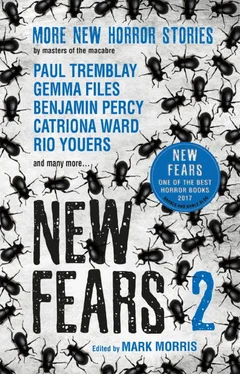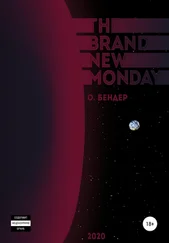Boxes are piled high against the walls. Her mother’s possessions sit eyeless in the cardboard dark. Anna feels that they are judging her or planning something. The tiny glass figurines, each requiring careful individual wrapping. The collections of commemorative spoons and tea towels. The hundreds of plastic bags tucked into every crevice. Under cushions, behind radiators, at the back of cupboards. How can there be so many? What emergency would require them?
A thin wail trickles down the stairs. Pearl.
Anna starts, shivers, and goes to her daughter with relief. It is good to busy herself with life.
* * *
The tiny box room is hot, full of Pearl’s breath. They both sleep here. Next door is the dark bedroom where the apparatus of illness still stands; an IV drip swaying gently on an unfelt breeze.
Pearl is a small resentful shape curled on the inflatable mattress on the floor. Her head is silken under Anna’s hand. How can anything be so soft? The pyjamas with dragons on them, the plump, perfect limbs—Anna lets herself feel the animal joy in her daughter’s physical being. “You were so good today,” Anna says. “Such a brave girl.”
“I want to go home,” Pearl says. “I don’t like it here.”
“We will,” Anna says. “But now you sleep.”
Pearl clutches at Anna, tugs her hair. “I don’t like him. The boy. He was dirty. His teeth were brown. He said that he would take me. Tell him to go away.” She watches her mother for the effect of her words. Pearl’s imagination has begun to take flight. She is at that age.
“No one will take you,” Anna says. “Hush now.”
“It was the reekling,” Pearl says.
Anna’s blood cools so quickly that her ears sing. She strokes Pearl’s silken head. But the touch has lost its power. “Where did you hear that word?”
“He told me,” says Pearl.
“Don’t fib,” says Anna sharply. But who did? Her mother must have come to her senses when Anna left the room or as she dozed... recovered clarity just long enough to slip this old fear into Pearl’s mind, like a coin into a slot. Anna is savagely glad that her mother is dead. “That was just Granny’s story,” she says.
Pearl’s face goes pink. “I saw him.”
“Well,” Anna says, “I am a tiger and I will protect you from—everything.” She cannot bring herself to say “ the reekling ”. She makes her fingers claws, bares her teeth.
Her mother’s very own monster. It is different for everyone, taking the form of what you most fear. A beastie, or a scuttling thing… Perhaps it has long dangling arms like a chimpanzee and no eyes. Perhaps it curls about you softly, beneath the water, with its eight suckered arms. Perhaps it looks like the man at the deserted grocery store where Anna bought candy that summer when she was eleven. He slipped his cold hand up under her skirt as he gave her change. Whatever it looks like, it is the reekling and you know it when it comes.
Ma’s warm voice is in Anna’s ear now, shot through with the lilt of the old country. It takes you from the world and puts you behind a wall of glass . You are forever outside in the dark, your palms pressed against the lighted window. You feel the breath heavy on the back of your neck . You and I, alone together , the reekling says soft in your ear.
The hairs on Anna’s forearms lift like spiders’ legs and she scolds herself. “Do you want a drink?” she asks, nose buried in Pearl’s fine hair.
“I want hot chocolate,” Pearl says.
Anna wipes a fine sheen of sweat from her brow. “Surely not.”
“I do, I do, I do!” Each do rises higher.
* * *
In the kitchen Anna lights the stove. A breeze ruffles the curtains. Through the open window, the scent of flowers opening in the dark. She puts a drop of vanilla essence in the pan with the milk. It sits warm in the air, mingling with wisteria and moonflower. Anna thinks of her mother’s dark eyes, her dark mind. She curses her, wherever she is. And she feels the ache of loss.
* * *
Sometimes she thinks her mother began dying the day she stepped off the boat forty years ago. Ma never accustomed herself to this country, to its high clean horizons. The land here had no memory, she said. But Ma brought something with her from the old world.
“I led it here,” she said. “But I won’t let it get us. I know its tricks.” Ma took Anna tightly in her arms and the long brown skein of her hair fell over them both.
* * *
Anna stirs cocoa powder and sugar into a paste, takes the pan off the heat, pours in more milk. A little cinnamon, more vanilla. Anna puts the pan back on the stove now, just as Ma taught her. Not all the memories are bad. In the early days Ma cooked. Childhood was full of the grainy scent of scones, cauliflower cheese soup, tipsy cake which took a little bite out of the back of Anna’s throat and made her head sing pleasantly. Perhaps the reekling was just a story then, to frighten Anna into obedience. But imagination can be an unpredictable guest. The reekling took up residence.
Anna does not recall exactly when Ma stopped sleeping. She began to sit up nights, drinking coffee thick as syrup. Later it was laced with whiskey and then with ground-up Benzedrine. “I will stop it coming in.”
There was no more cooking. Or there should have been no more. Anna found pieces of glass in mouthfuls of potato. She spat the shards out carefully and said nothing. She was afraid but she could not say of whom. It was not possible that she should fear her mother.
Eventually Ma just stayed in her chair at the window. She watched for the reekling at all hours, her trembling hand parting the curtains in the dawn. “I guard this house,” she said to no one.
Anna taught herself to drive the truck. Each day she drove most of the way to school, parked down a track in the woods and walked the rest. She would have rather died than let anyone know about Ma.
Later they gave it a name. A soft-sounding word, schizophrenia , the s and z sounds slithering after one another, the plump landing of the ph . But all that came afterwards. For years it was just Anna and Ma, watching for the reekling.
Everyone has a secret that lies at the heart of them. This is Anna’s. No matter where she goes or how many years pass, it is nested within her. Her mother’s wide eyes fixed on the middle distance, her frame shaking after six wakeful days.
The hot chocolate steams in the pan. Anna tastes it. It is perfect. Sweet, homelike in a way this home never was. Anna shakes her head, irritable. She has fought to give Pearl a life different from her own. But the past is everywhere tonight, wreathed about like smoke.
Anna does not see the boy until he is almost upon her. He comes out of the store cupboard like a shadow, face dead-pale above his ragged shirt, brown teeth bared, eyes deep whorls into nothing. An iron bar whistles by her head as she ducks, the air hums with its passage.
Anna seizes the pan from the stove and swings it at his face. She hears it connect with cartilage and bone. The boy screams. Steaming milk spatters, runs down his acne-scarred cheeks in rivulets. He falls to the floor, moaning through bubbles of milky blood.
Anna looks at him for what feels like an age but is probably no more than a moment. His lank black hair, his broken fingernails. Dark lashes, long on plump cheeks. Arms mottled with purple scars. Face dusted with acne. He is small, slight. He looks hungry. She takes in everything, each detail of the boy who has come into the house where her child is.
Anna seizes the phone from the shelf above the stove. She runs from the kitchen. She has been preparing for this moment since Pearl first opened her dim baby eyes.
Читать дальше












